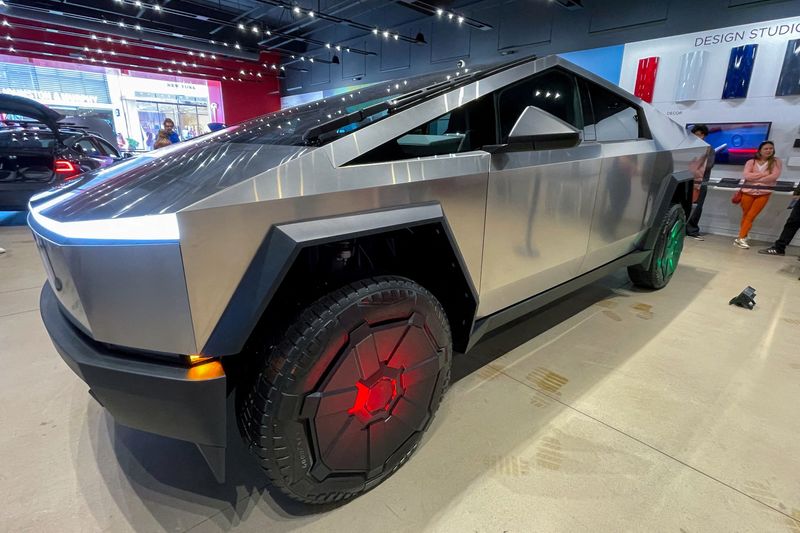Many electric vehicles lost eligibility for tax credits of up to $7,500 after new battery sourcing rules took effect on Monday, including the Nissan Leaf, Tesla Cybertruck All-Wheel Drive, some Tesla Model 3s and Chevrolet Blazer EV, the U.S. Treasury said.
The Treasury issued guidelines in December detailing new battery sourcing requirements aimed at weaning the U.S. electric vehicle supply chain away from China. They took effect on Monday.
The number of EV models qualifying for U.S. EV tax credits fell from 43 to 19. Those figures include different versions of the same vehicle type. Treasury said some manufacturers have yet to submit information on eligible vehicles, which could lead to changes in the list.
…
The 2022 Inflation Reduction Act law reformed the EV tax credit, requiring vehicles to be assembled in North America to qualify for any tax credits, eliminating nearly 70% of eligible models at the time.
Everyone that’s pissy about someone buying an ICE vehicle right now fails to realize issues like this. I’d love to save money while helping the environment by buying electric, but the barrier to entry is way too high still.
I need an AWD for winter driving, cargo space for my job, 100+ miles of range for frequent trips to visit friends and family, and for it to not be owned by Elon Musk.
That leaves like 9 options in the EV market and none of them qualify for my state’s tax credit or the federal tax credit now. So I really have no choice if I’m wanting to keep my payment equal to or lower than the $300/mo I’m paying right now.
The only reasonable way for many of us to have an EV right now is to also have an ICE vehicle for the things the EVs we can afford can’t do.
My wife and I have pushed having one car between us to its limit so we’re looking for an EV for regular local driving, but we really can’t risk having only an EV since the ones we can afford are all very small and not AWD. Should be able to replace a lot of our ICE driving but not all.
Too bad plugin hybrids are not more available. My family uses a 10 year old Chevy Volt as our main vehicle. It gets 38 miles/60km on battery which covers most of our driving. Only longer trips on the weekends or the occasional road trip uses any gas. The dehumidifier I run to keep the basement dry uses more electricity than the car. It does ok in snow with winter tires, as long as the snow isn’t too deep. I’m in rural great lakes region in a snow belt.
What I want is a plug in hybrid diesel truck, so I can run on battery 95% of the time, but still use it for camping trips (where it would also double as a battery pack and generator)
Rebates on new cars are just handouts to the big corporations, anyway. I’d much prefer no blanket rebates on any cars in favor of a system that focused on getting discounts for the poor/working class. (Well, public transit and micromobility would be even better, but that’s a different story).
For anyone who thinks getting the % of EVs up is more important than being fair, you’re wrong. It’s more environmentally friendly to continue to drive an already owned ICE car till it can’t be repaired to drivable condition anymore than it is to swap out a working ICE car for a new EV.
The poor often don’t get new cars until they are forced to (i.e, a crash or conplete breakdown), so you’ll likely get more environmental (and social) bang for your buck by focusing public spending on them.
Depends on how much the old banger is driven. The tipping point is much earlier than I expected.
https://www.youtube.com/watch?v=6RhtiPefVzM
I’d love to drive the old bangers more though. The rumbling sounds and the hope it’ll keep up as the engine gets pushed beyond reasonable limits before the inevitable gear change. The whistling turbo as you reach its zone and the gently ticking valves of a cold engine. But turns out gas guzzling fun was never going to be a lasting treat in our habitat. As I write this, our neighbourhood has a reasonable chance of getting flooded because of the strange weather lately, and I am glad I’ve grown to appreciate the lovely hum of our electric minibus.
We need to travel less and enjoy it longer. Much much less. Every region is different. Our region has good public transport if you accept cycling for 30 minutes. Traveling 100km for work daily is bad for the environment. So we mostly need a culture change here. And people who lack the funds seem to care even more for cars here so we need cheap electric cool econoboxes with too, I guess.
The poor should sit at home.



